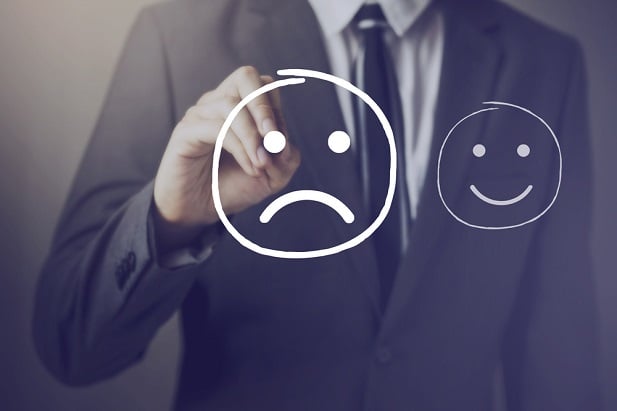 Employee well-being is no longer exclusively the responsibility of the HR department, but a company-wide concern. (Photo: Shutterstock)
Employee well-being is no longer exclusively the responsibility of the HR department, but a company-wide concern. (Photo: Shutterstock)
Research demonstrates that workplace stress is on the rise and it is taking a devastating toll on business productivity, with one in 10 hours lost to unplanned days off in the retail sector alone. It is clear that today's businesses are failing to prioritize employee well-being to an adequate degree and losing a significant chunk of productivity and efficiency as a result.
This trend demonstrates that mental health and physical health are strongly intertwined with the success of businesses' day-to-day operations, with stress and anxiety in the workforce driving absenteeism and distracting workers from their responsibilities and motivation to succeed in their jobs.
Related: 10 unusual approaches to improving employee well-being
Another challenge comes in the shape of rapidly changing workforce demographics: a younger workforce is increasingly measuring well-being in terms of self-fulfillment. For these employees, well-being derives not just from the work they do and how they do it, but from who they are and what drives them in both their personal and professional lives.
Because of this shift, if enterprises increase employee productivity, they need to redefine what is meant by workforce well-being and who is responsible for it. This will mean that employee well-being is no longer exclusively the responsibility of the HR department, but a company-wide concern. From flexible hours for parents and carers to company-sponsored employee charity fund-raising or healthy lifestyle initiatives, employers will need to take a far more hands-on approach to ensuring workers' needs are met in every aspect of their lives.
Indeed, rewards and recognition programs are now being designed to be compatible with everything from fitness trackers to travel websites. We could see holistic online corporate reward programs that reward not just work-related targets but also personal development goals such as training for a marathon or quitting smoking. Incentives will also expand from the antiquated model of cash bonuses to a more experiential focus, with employee rewards including prizes such as adventurous trips abroad or vouchers for adrenaline-pumping excursions such as bungee jumps or safaris.
In terms of how this would likely work in practice, data from progress towards aims like personal fitness goals could be included alongside data on progress towards passing a workplace qualification in counting towards 'points' on employee scoreboards, leading to rewards such as gift experiences. Personal development goals could be married with work-related targets as measures of employee self-development to be incentivized and rewarded. This could incentivize greater productivity and the resulting data could help employers reduce employee health insurance premiums or personalize rewards and incentives.
Of course, improving workforce well-being and productivity is an even greater challenge with an increasingly fragmented workforce of remote workers and channel partners with very distinct characteristics. Yet companies can and should look to capitalize on the recent explosion of digitization across sectors as well as the widespread advent of social media to fundamentally redesign their rewards and incentives programmed. Digital rewards platforms now allow companies to capture a myriad data on a wide array of differing characteristics, allowing businesses to personalize their rewards schemes in response to the growing diversity of the modern workforce and the younger generation's unprecedented appetite for individual recognition and fulfillment.
David Gould is CEO of CR Worldwide.
Read more:
© 2025 ALM Global, LLC, All Rights Reserved. Request academic re-use from www.copyright.com. All other uses, submit a request to [email protected]. For more information visit Asset & Logo Licensing.







